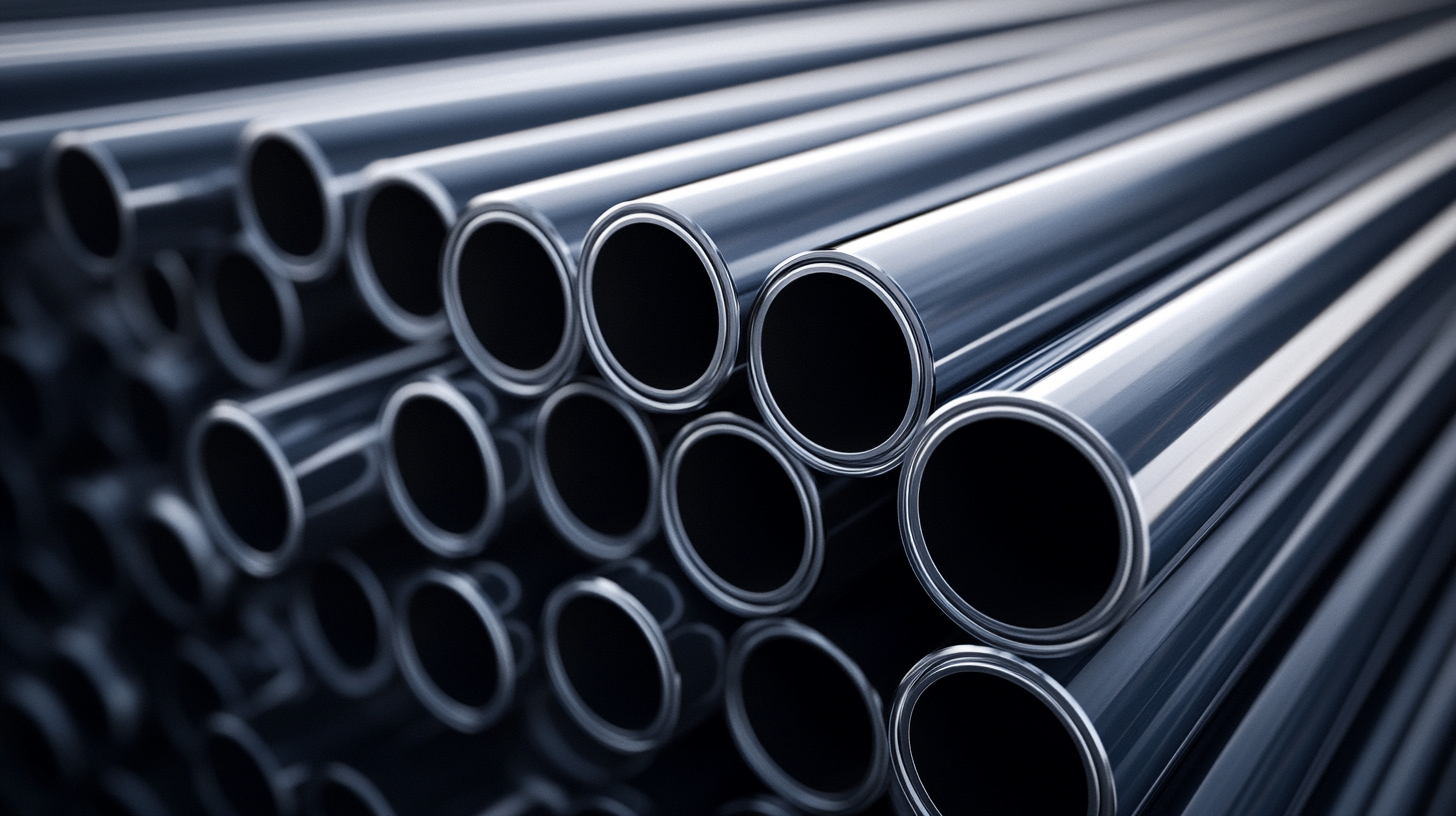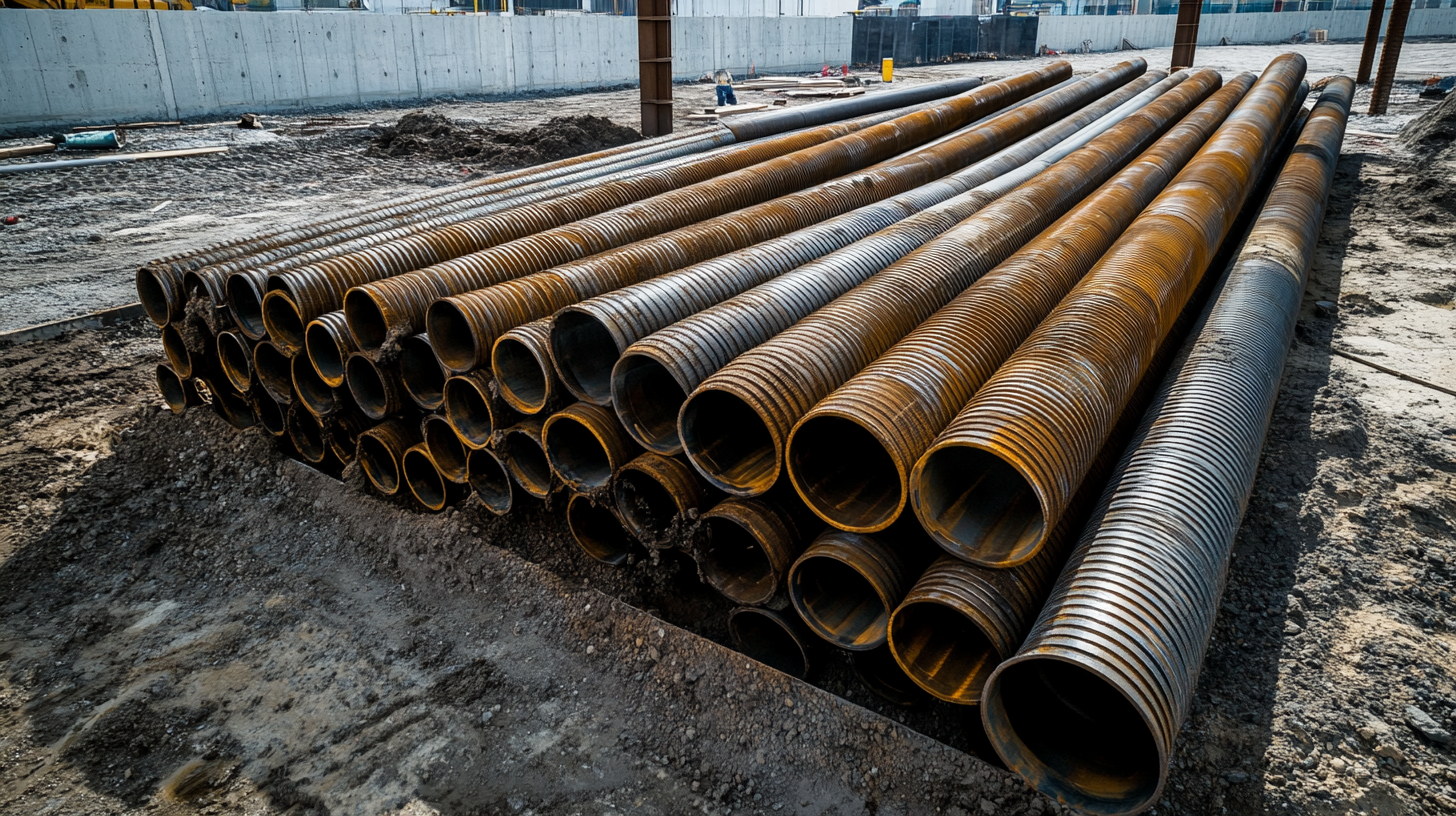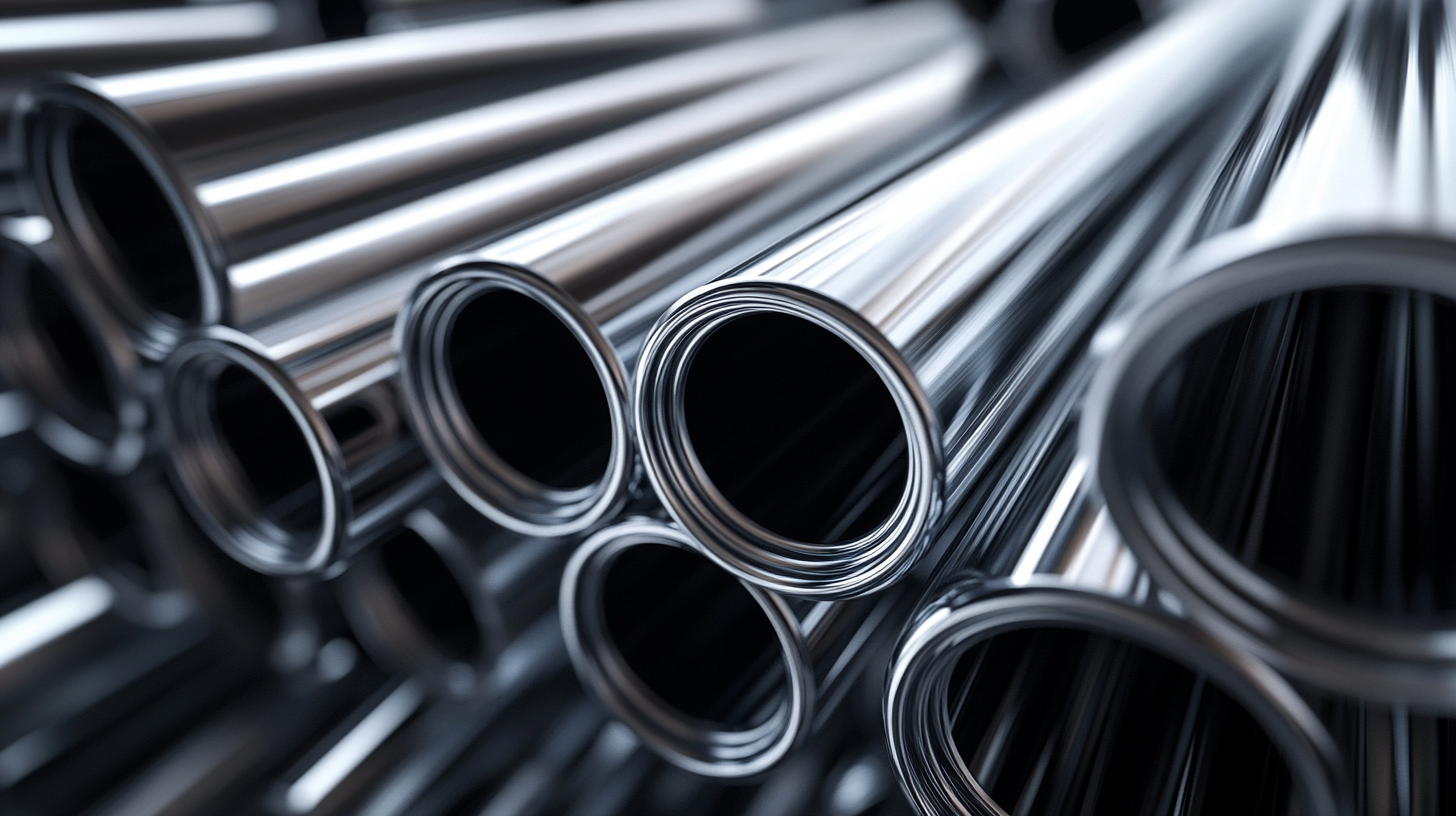More than from ever before, advanced construction faces an extreme requirement for the most obvious reliable materials that can take the tall journey of modern engineering. Among these indispensable materials is steel pipe, and indeed, it has become the lifeblood for creating strong and effective structures. It is increasingly recognized as a material from the perspective of its strength, versatility, and resistance to corrosion for multiples construction applications-from skyscrapers to infrastructure projects. Today, as pressures build against the entire roadway and stringency on the issues of innovation and sustainable advances in the industry, steel pipe solutions offer a whole new definition of heavens in the next few generations' improvements.
The high-quality steel pipe solutions increasingly usher in a new horizon against the traditional way of thinking construction materials into reference at all. The road to newer applications and more applications made possible because they were facilitated by technological achievements in better manufacturing and other developments now paves the way for future applications of steel pipes in meeting the requirements for today's construction projects. This blog will discuss how the ideal foundation may be laid by steel pipe solutions for structural integrity, economy, and sustainability in today's world where quality and efficiency rule construction.

Material selection is therefore pivotal in modern construction to achieve durability, safety, and efficiency. It is quality steel pipes that bear the brunt of this industry by ensuring that infrastructure projects live on through time and elements. In contrast to any cheaper alternatives, premium-grade steel pipes are enhanced in strength, corrosion resistance, and performance. Such traits make them key to applications ranging from skyscrapers to pipelines. Thus, on one side, the usage of high-quality steel pipes improves the structural integrity of buildings; on the other, they also contribute positively towards sustainability. These pipes can withstand wear and tear for a very long time, thus eliminating the need for constant replacements and repairs, limiting waste and reducing carbon footprint for construction projects. Furthermore, strong steel infrastructure increases safety to workers and end-users alike by guarding against failures with inferior materials. The more innovative the construction sector turns, the more its need grows for advanced material solutions. High-quality steel pipes reflect that transition, bringing with themselves distinctive benefits in tune with the changing needs of the industry. Investments in steel pipe solutions of superior quality not only respond to contemporary needs but also lead to the formation of a sustainable and resilient path for construction.

Steel pipes' production is undergoing a transformation due to advanced manufacturing techniques that allow the industry to respond satisfactorily to the demand imposed by both mature and emerging industries, including green energy and deep-sea exploration. Recent advancements in high-quality steel production processes have improved strength and durability for applications in extreme environments, where deep-sea conditions can reach a depth of 3,500 meters that presents challenges by way of pressure and temperature.
The growing trend is automated welding and precision manufacture for enhanced structural integrity and costing. The market is to be strong and is projected to reach $25 billion by 2030, and this has ensured that companies are investing in new technologies. High-tech materials and methods are now allowing manufacturers to make steel pipes that can withstand pressures beyond 350 atmospheres, which are very beneficial for subsea construction and hydrogen storage projects.
Also visible are firms that adapt their manufacturing capability to enhance production in consideration of climate goals worldwide toward green energy solutions. Techniques that reduce waste and increase efficiency do meet regulatory requirements but herald the industry's movement toward a sustainable future. As a result of increasing demand for high-quality steel pipes, innovation in manufacturing processes will largely define the future of construction and infrastructure development.

Addressing matters of sustainability has fied a strong position in industries like construction, with eco-steels taking the lead in the movement toward a more responsible future. The No: of the World Steel Association reports that almost 7% of the total greenhouse gas emissions in the world comes from the steel industry. However, advancements in production technologies such as electric arc furnace (EAF) technology and the use of recycled materials are making steel manufacturing a much more sustainable activity. It is estimated that the energy used during the recycling process when making steel is reduced by up to 75%.
Moreover, the construction sector is starting to appreciate the benefits of high-quality steel pipes and structural members in terms of their load capacity and durability, as well as recyclability and lifecycle sustainability. The American Institute of Steel Construction notes that steel can be repurposed over and over without losing quality, thus making it an attractive material for construction professionals looking to meet green certification standards such as LEED. Construction projects can significantly improve their chances of achieving the credentials by introducing eco-friendly steel solutions into their design and construction processes.
All of these are examples of revolutionizing businesses that are making advancements with fresh technologies and processes in doing things sustainably. For example, recent research shows that integrating renewable energy sources in the steel production process could bring a reduction in carbon emissions of about 80% by the year 2030. This dramatic turn towards those practices shows the exceptional relevance of eco steel solutions in modern construction. They denote a bright future in converting the construction role into a greener, more sustainably alive one.

Steel pipes are active components of different infrastructure projects because of their inherent durability and versatility. Mordor Intelligence considers the global steel pipe market to be growing at a rate of 5.5% between 2021 and 2026, with infrastructure development investments driving the market. High-quality steel pipes keep construction projects structurally sound and sustainable with high resistance to corrosion and extreme weather conditions.
Steel pipes operate in a critical capacity for water and sewage systems. Their sturdy build allows them to withstand high pressure, making them very suitable for the efficient transportation of water. The American Water Works Association has stated that steel pipes account for a significant share of the materials used in municipal water systems, providing dependable service far longer than traditional materials such as PVC. The oil and gas industry use high-quality steel pipes in pipelines; as per research conducted by Grand View Research, the global oil and gas pipe market is expected to achieve $45.35 billion by 2025, further underlining the pertinence of steel pipes in energy infrastructure.
Moreover, with the capability to carry load, steel pipes are being extensively used in bridge construction and commercial buildings. All over the world, the construction sector has been shifting toward the use of sustainable materials, and steel pipes perfectly complement this new emergence. The World Steel Association published that the recycling rate for steel stands at more than 85%, giving steel its green credentials. With continuous developments in technology and engineering practices, the application of high-quality steel pipes will remain key in construction going forward and will facilitate growth and innovation in infrastructure development all over the globe.
Innovative technologies for steel pipes are just about to transform the construction industry in terms of overall efficiency and sustainability. A recent MarketsandMarkets report estimates the global steel pipes market to grow from $110 billion in 2021 to over $160 billion by 2026. It represents approximately 7.6% annual growth rate. This surge in demand is mainly owing to high-quality steel pipes, which offer enhanced durability and corrosion resistance, most especially for modern construction practices.
One of the most vital developments in steel pipe technology is the merging of modern manufacturing techniques like automation with precision engineering. Not only do they guarantee improved quality of the finished steel pipe product, they also lead to shorter lead times and less waste produced during the manufacture. As stated by the World Steel Association, these technologies reduce up to 25% CO2 emission production due to their adoption, thus fulfilling the purpose of global sustainability goals.
Essentially, the innovators' materials include high-strength steel and composites, which redefine construction practices. Research published in the Journal of Construction Engineering and Management explains high-performance steel pipes can reduce total structural weight by as much as 20% and allow for cheaper versatile designs. These developments are in an overall trend towards greater efficiency and sustainability in the sector, guiding promising resilience for the future of construction.
Steel pipes are primarily used in water and sewage systems, oil and gas pipelines, and the construction of bridges and commercial buildings.
Steel pipes provide long-lasting reliability and can withstand high pressures, making them more durable and efficient for transporting water.
The global steel pipe market is expected to grow at a CAGR of 5.5% between 2021 and 2026, driven by increasing investments in infrastructure development.
High-quality steel pipes are essential for pipelines in the oil and gas industry, contributing significantly to energy infrastructure.
The recycling rate of steel is over 85%, highlighting its environmentally friendly profile and alignment with sustainable construction practices.
Steel pipes offer excellent resistance to corrosion and extreme weather, and their high recycling rate supports environmentally sustainable practices.
Continued advancements in technology and engineering practices are enhancing the application of high-quality steel pipes in infrastructure development.
Steel pipes are appreciated for their load-bearing capabilities, which makes them suitable for supporting the structural integrity of bridges.
The global oil and gas pipe market is expected to reach $45.35 billion by 2025, emphasizing the critical role of steel pipes in this sector.
The shift towards sustainable materials and the inherent durability and versatility of steel pipes are key factors driving their adoption in construction projects.